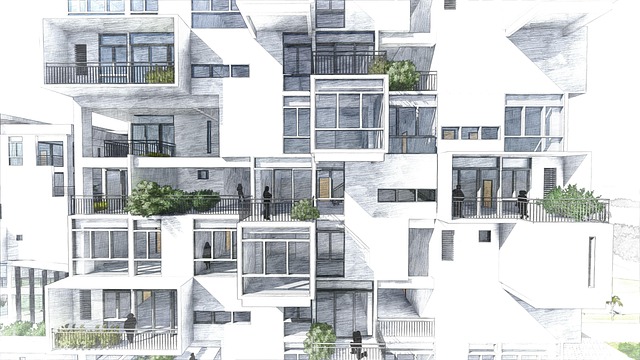Off-campus renting for students involves researching local markets, prioritizing needs and budget, utilizing online tools, and understanding rights/responsibilities. Lease agreements, safety, and community engagement are key. It offers independence but requires proactive engagement, maintenance, and utility management.
“Unsure about off-campus housing? This comprehensive student housing guide is your go-to resource. We break down everything from understanding diverse rental options tailored for students, crucial factors to consider while renting, and locating safe, affordable spaces. Learn how to negotiate leases, assert your rights as a tenant, and maximize your off-campus living experience. Equip yourself with the knowledge needed to make informed decisions regarding your next place to call home while renting for students.”
- Understanding Off-Campus Rental Options for Students
- Key Factors to Consider When Renting Off Campus
- Locating Safe and Affordable Student Housing
- Negotiating Leases and Rights as a Tenant
- Making the Most of Your Off-Campus Living Experience
Understanding Off-Campus Rental Options for Students

Off-campus living offers a diverse range of rental options tailored specifically for students. From shared apartments to studio lofts, landlords cater to various budgets and preferences. Students can choose to live near campus for easy access to classes and extracurriculars or opt for more affordable accommodations in nearby neighborhoods.
Understanding the local rental market is key when exploring off-campus housing. Factors like property type, location, amenities, and lease terms vary widely. Researching online listings, visiting open houses, and connecting with student-focused real estate agencies can help students make informed decisions about their ideal rental situation.
Key Factors to Consider When Renting Off Campus

When considering off-campus housing, students should start by identifying their priorities and budget. Key factors like location, cost, and amenities play a crucial role in shaping their living experience. Proximity to campus is essential for many; a shorter commute can save time and reduce travel costs. Students also need to evaluate the rental price against their financial capabilities, keeping an eye on hidden fees. Additionally, understanding what amenities are included or available nearby—like fitness centers, laundry facilities, or social spaces—can significantly impact their living comfort.
Researching the neighborhood is vital; safety, local services, and community vibe can greatly affect daily life. Students should check for secure entry systems, emergency contact information, and reliable maintenance services. Exploring options online, reading reviews, and even visiting properties before signing a lease are smart steps to ensure a well-informed decision during the exciting journey of renting for students.
Locating Safe and Affordable Student Housing

Finding safe and affordable student housing is a top priority for many off-campus renters. Start your search early to increase your options, as high demand can make competitive rental markets. Utilize online resources specifically tailored to students, which often filter listings by price, location, and amenities relevant to academic lifestyles. These platforms provide a convenient way to compare different properties and connect with landlords or property managers directly.
When evaluating potential housing, consider proximity to campus, transportation options, and safety features. Many student renters seek areas with a good mix of independence and convenience, close enough to walk or easily accessible by public transport. Additionally, checking for secure entry systems, well-lit common areas, and on-site security can enhance peace of mind. Balancing your budget with desirable location and amenities is key to securing suitable off-campus student housing while ensuring a safe and enjoyable living experience.
Negotiating Leases and Rights as a Tenant

When it comes to negotiating leases and rights as a student tenant, understanding your responsibilities and protections is crucial. As a renter, you have certain rights that should be clearly outlined in the lease agreement. Look for details about renewal options, subletting policies, and maintenance procedures. Ensure you have the right to live in a safe and habitable space, with regular inspections and timely repairs.
During negotiations, don’t hesitate to ask questions or seek clarification on any terms you’re unsure about. Know your legal rights regarding security deposits and rent increases. Student housing options often come with unique provisions, such as flexible lease terms or opportunities for community engagement. Familiarize yourself with these details to make an informed decision that aligns with your renting for students needs and budget.
Making the Most of Your Off-Campus Living Experience

Making the most of your off-campus living experience involves actively engaging with your new environment. Renting for students often provides more independence and flexibility compared to on-campus housing, but it requires taking on additional responsibilities like maintaining your space and managing utilities. To maximize your time away from home, consider joining local student groups or clubs that align with your interests. Exploring nearby amenities such as libraries, cafes, and parks can enhance your overall well-being and provide opportunities for social interaction.
Being proactive in your search for rental options through online listings, student housing forums, or real estate agents ensures you find a place that suits your needs and budget. Remember to read lease agreements thoroughly before signing, understanding the terms regarding rent payments, maintenance requests, and any restrictions on subletting or having guests over. Building good relationships with roommates and neighbors fosters a harmonious living environment, making your off-campus experience even more rewarding.
